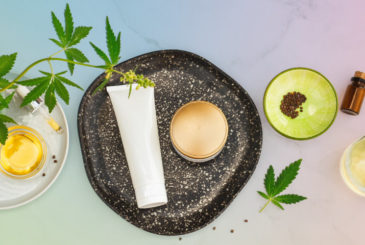

Last month, the sports world was shocked to learn that runner Sha’Carri Richardson — expected to compete for gold at this year’s Olympics in the women’s 100 meters — had instead been issued a one-month suspension as a result of testing positive for THC. It was a devastating blow to someone considered to be the sixth-fastest woman in history.
Due to her suspension, Richardson was unable to make the trip to Tokyo, where she was a favorite to win the individual 100 meters event. She was also subsequently left off the roster for the 4×100 relay by USA Track & Field, ending her hopes of running for an Olympic medal this year.
The reaction to Richardson’s ban was swift and loud.
Many public figures took to social media to voice their support for the runner. In criticizing the suspension, some pointed to the absurdity of classifying cannabis as a “performance-enhancing” substance while more obvious options (like caffeine) remain perfectly acceptable to use during competition.
Another, related component concerns the conditions under which Richardson chose to consume.
Shortly before she was set to compete in Olympic trials in Oregon this June, the runner was informed by a member of the media that her mother (to whom she was estranged) had died. She described what came next as “a state of emotional panic,” leading her to use cannabis as a means of combating her anxiety and sorrow.
Thus, Richardson’s cannabis was really akin to taking a Xanax — which itself is approved for Olympians — and not a shot of steroids.
As Sha’Carri Richardson sits at home, U.S. soccer star Megan Rapinoe unveiled her own line of CBD products while competing at the Tokyo Olympics. The news was not well-received by those still fuming over Richardson’s ban for THC.
A recent feature detailing Rapinoe’s CBD brand (Medni, a collaboration with her sister) also made note of a number of other Oympians poised to become the faces of various “cannabinoid-based” products. Among them: WNBA champ Sue Bird, hurdler Devon Allen, and softball player Haylie McCleney.
The crux of the issue concerns the fact that the World Anti-Doping Agency (WADA) allows athletes to use CBD but prohibits use of all other cannabinoids, both synthetic and natural. Based on WADA’s own listed criteria for banned substances (has the potential to enhance performance; represents an actual or potential health risk to the athletes; or violates the spirit of sport) it’s difficult to see why THC remains outlawed.
Speaking with the media in Tokyo, World Athletics President Sebastian Coe offered an opening for a change in policy, saying revisiting the issue would be “sensible, as nothing is set in tablets of stone.”
Coe’s words weren’t offered in isolation either. Earlier in July, International Olympic Committee member Dick Pound — a founder of the World Anti-Doping Agency — gave his own take in favor of a more progressive pot policy for Olympic athletes.
“One of these days, we should probably either take it off the list entirely, or say it’s there but the minimum sanction should be something like a warning, so you’re not losing any period of eligibility,” Pound remarked. “Frankly, I don’t think there’s evidence it’s performance-enhancing, and/or it’s a drug that masks the use of other drugs.”
In addition to possible action from WADA, Richardson’s band also inspired House Oversight Committee members Reps. Jamie Raskin (D-Md.) and Alexandria Ocasio-Cortez (D-N.Y.) to draft a letter to the agency asking them to reconsider the ban. WADA reportedly responded by saying they were bound by current rules.
Most recently, the decision of all-time gymnastics great Simone Biles to withdraw from competition for mental health reasons reiterated the situation with Richardson, who consumed cannabis as a means of protecting her own mental well-being.
“I’m human,” Richardson shared to Twitter after news of her ban went viral.
It is a sentiment that will assuredly become a major factor as the world looks to evolve its understanding and appreciation for the role cannabis plays in many of our daily lives.

Put simply, marketing is hard. It’s true for any industry, but when it comes ...
Read More
Like any industry, women make up a massive part of the most innovative, inspire ...
Read More
Social media marketing for CBD can be challenging, as many social media platfor ...
Read More©Copyright 2024 Bhang Media, Inc. All rights reserved.
